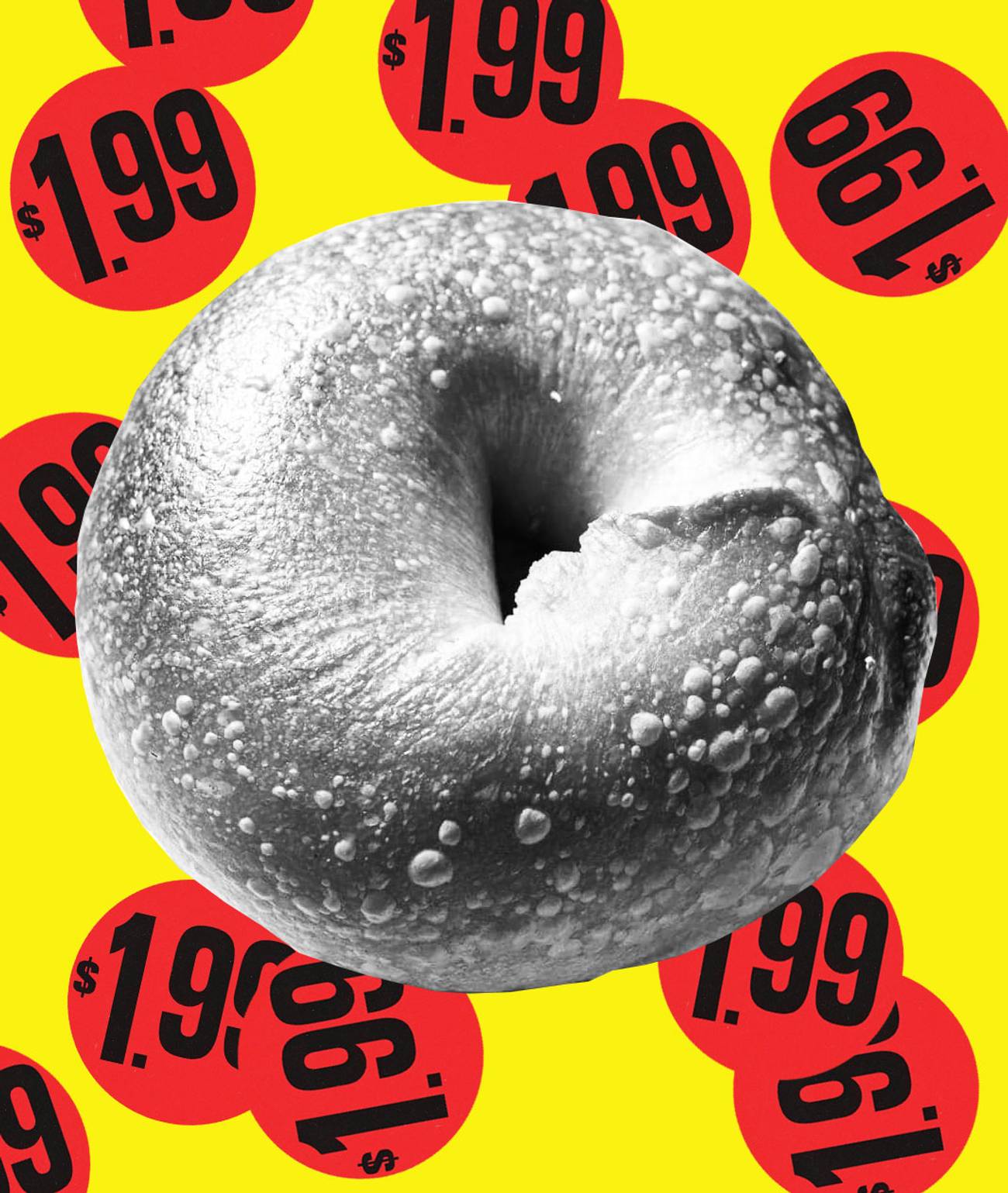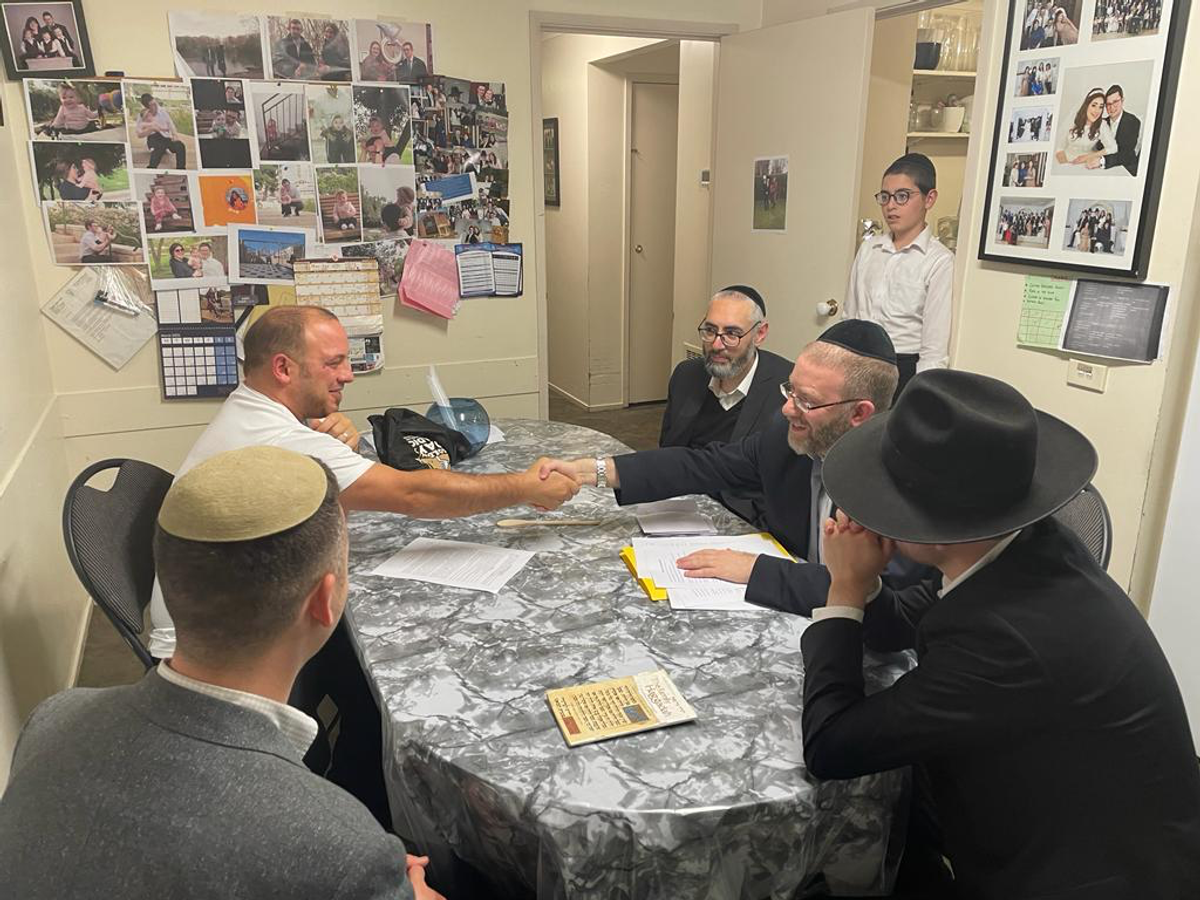Bread for Sale
Meet a few of the non-Jews who ‘buy’ chametz every Passover




As an ordained Anglican priest, Patrick Moriarty is not exactly what one would call a typical Jewish school principal. He is used to quizzical stares when he informs people that he has been headmaster since 2013 of London’s pluralist Jewish Community Secondary School—one of the largest Jewish day schools in England, with over 1,000 students.
“I have always lived in and around the Jewish community,” said Moriarty. “At the last school I taught at, about 25% of the students were Jewish, and growing up [in London] about 30-40% of the kids at my school were Jewish.”
While he is involved with many Jewish activities through his job, his favorite comes every Passover, when he has a special role to play: In the lead up to the holiday—when Jews are forbidden not only to consume leavened products, but also to own any—Jewish people sell their chametz (leavened products) to non-Jewish purchasers for the duration of the festival.
“I love this wonderfully bizarre ritual,” said Moriarty with a chuckle. “When I came to JCoSS I was the obvious person to purchase the chametz.”
He doesn’t just buy a loaf of bread or a jar of mustard: Each year, he purchases the entire £50 million, state-of-the-art Jewish secondary school, with all its associated leavened products inside, for a few pounds. Some years its purchased for £1, or “whatever we have in our pockets,” said Moriarty. And when the holiday is over, he sells it back for the same price.
It’s a deal that works well for both him and the school. “Patrick has his own strong faith and his own community, but he is our chametz purchaser,” said Sara Levan, director of Jewish life at JCoSS, who organizes the annual sale. “Each year he goes off into a corner with our school rabbinic consultant, Michael Pollack. It’s a gentlemen’s agreement, I would say. Michael writes up the contract—it’s usually a couple of handwritten lines. I am a broker in that I make sure the deal goes through.”
In the Bible, the Jewish people are commanded to eat unleavened bread over Passover. For much of history, this meant that Jewish people discarded all their leavened products and did not own any chametz during the eight-day holiday, including anything made with wheat, barley, oats, spelt, or rye. However, as food storage improved, and especially in the late 18th century, as Jewish people entered the liquor business, it became very costly for them to rid themselves of all their leavened products.
To help businesses manage their stock and prevent immense financial loss by discarding chametz, rabbinic scholars devised the “sale of chametz” ritual that is used by millions of Jewish people around the world. This transfer of ownership allows Jews to abide by the requirements not to own any chametz by selling it to a non-Jewish buyer, with the option to purchase it back after Passover.
Moriarty takes his role each year as the purchaser of all chametz products at his school seriously. “I think that’s why it works for me at JCoSS so well,” he said. “Religion and rituals are faintly absurd and deeply serious. Once you are in one religion you can then understand the absurdity of another. To the community it becomes deeply meaningful and profoundly significant. I say OK, I will join in your absurd and deeply significant ritual. That’s what religion is, absurdity on one hand and profundity on the other.”
Moriarty will not be the only one purchasing chametz this year. Many thousands of transactions will take place in Jewish communities around the globe.
In Melbourne, Australia, Andre Bonnici—who is Roman Catholic—is a beloved barber located in Ripponlea, the heart of the tightknit ultra-Orthodox community. “My dad was a barber in Ripponlea,” he said, “as was my grandpa.”
As the barber servicing local Jews from a variety of backgrounds, Bonnici is familiar with many different sects’ “standing look” haircuts, including leaving the sidelocks unshorn, and he has performed many an upsherin, the customary first haircut for Hasidic boys at age 3. Since 2016, he has also held an important role as the purchaser of chametz from the nearby Shaarei Tefillah synagogue.

A few years ago, Rabbi Arieh Berlin—the head of the synagogue, and a regular client of Bonnici’s—came into the barbershop with a special request. “Rabbi Berlin asked me if I would consider purchasing the chametz on behalf of his congregation,” Bonnici recalled. “He used to sell it to another rabbi, and then that rabbi would on-sell it, but that rabbi was going back overseas, and he wanted to know if I would consider buying it instead.”
The answer was an immediate yes.
“I have known Andre since I came to Melbourne” over 20 years ago, Berlin said, “and he has always been my barber. Because he was so familiar with Jews and the Jewish customs it made it easier to ask him.”
It’s easy to see why Berlin asked Bonnici: He is an extremely popular figure among his mainly ultra-Orthodox clientele, who appreciate his sense of humor and easygoing nature.
But each year, Bonnici takes his chametz ownership one step further: While he owns the chametz, he really owns it. “I always choose a customer who I know and conduct a ‘home visit.’ I usually come in and take a bottle of liquor. Last year one of them had a nice bottle of chocolate liqeuer,” he said, before adding with a laugh: “My wife loved that one.”
“The first year I did a home visit,” he said, “I went to Rabbi Berlin’s house. He had his friends over for dinner. He let me in and told me to take whatever I wanted. I chose a Tasmanian bottle of whiskey. A nice one.”
Recalling that visit, Berlin noted that his guests, who also get their hair cut at Bonnici’s barber shop, put the barber up to it: “They told him that they were eating at my house. Andre said he had come to take the scotch. I told him: It’s yours. It’s in the garage.”
Berlin doesn’t mind that Bonnici conducts annual home visits and acknowledges that until the items are purchased back after Passover, Bonnici is indeed the rightful owner of these leavened products. “I knew Andre would actually feel comfortable to come into Jewish homes,” said Berlin. “I encouraged him. He did it to a few people.”
The families of Shaarei Tefillah who are also clients at Bonnici’s barber shop know these visits are all in good fun and the bottles of liquor are always returned when the chametz is sold back after Passover finishes (albeit, slightly lighter than they were taken).
“My family has been here 52 years,” said Bonnici. “We have been told many times we are honorary Jews.”
Halfway across the world, at Anshe Sholom B’nai Israel synagogue in Chicago, an annual chametz-selling ritual also takes place. Rabbi David Wolkenfeld sells the community’s chametz to Carol Ann Edwards-Nasser, a local real estate agent who is Presbyterian. It’s a special relationship that has spanned many years.
“I already knew Carol Anne because she was the Realtor who helped us buy the apartment near the synagogue, and she has experience with complex sales. Her business partner is also a member of our synagogue,” said the rabbi.
Edwards-Nasser knows that the sale of chametz requires extra details that are not part of other transactions she facilitates in her day job. “It is a very elaborate sale,” she said. For weeks leading up to Passover, the synagogue collects forms from the community and people list where they keep their chametz. And as the festival approaches, Wolkenfeld gathers a stack of forms authorizing him to sell the community’s chametz.
Each year, on the eve of the holiday, the community gets together to witness the sale of their leavened products to Edwards-Nasser. “I pay for it,” she said. “When the congregation buys back the chametz, I am entitled to get my money back. But I usually donate it to the Torah fund.”
The community is certainly grateful for all her assistance over Passover. “It’s a wonderful model of interfaith cooperation and Carol Anne helps us to celebrate our holiday,” Wolkenfeld reflected.
Edwards-Nasser takes her obligations seriously and has deep love and respect for the Jewish people.
“My father was a liberator in WWII. When he heard I was doing this, he teared up. He was so proud of me,” she said. “Of anything I’ve accomplished in my life, it was this that my dad was the proudest of—that I was chosen by the congregation to help them.”
Nomi Kaltmann is Tablet magazine’s Australian correspondent. Follow her on Twitter @NomiKal.